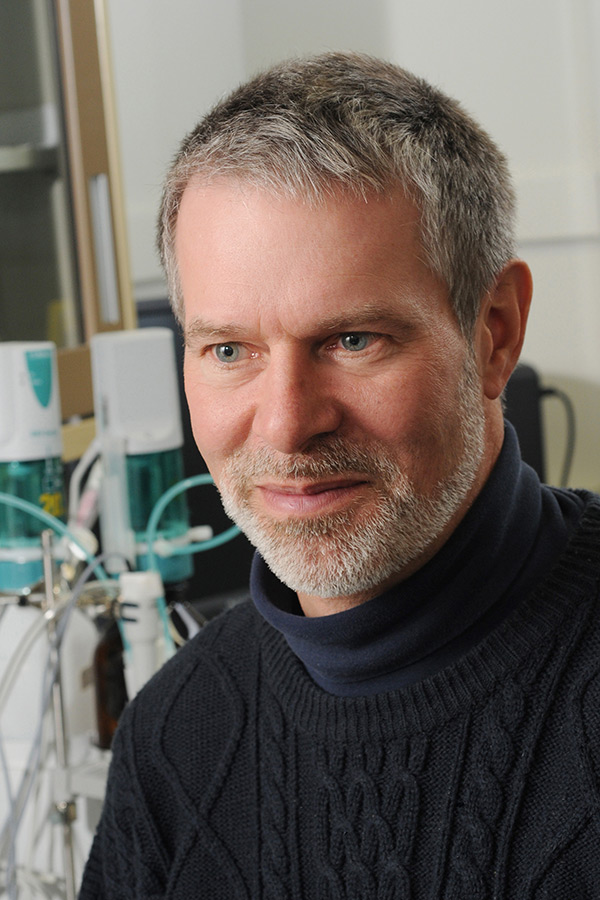BOONE—Dr. Robert M. Hazen, a research scientist at the Carnegie Institution and professor at George Mason University, will be the guest lecturer for Appalachian State University’s upcoming Morgan Science Lecture Wednesday, March 23.
The Morgan Lecture Series in the Sciences was created by an endowment from the G. William Morgan Family. Additional sponsors are the College of Arts and Sciences and the Department of Geology.
He will present the talk “Chance, Necessity and the Origins of Life” at 6:30 p.m. in the Schaefer Center for the Performing Arts. Admission is free and the public is invited to attend.
Hazen is a research scientist at the Carnegie Institution of Washington’s Geophysical Laboratory and the Clarence Robinson Professor of Earth Science at George Mason University.
Hazen’s recent research focuses on the role of minerals in the origin of life. He has developed a new approach to mineralogy, called “mineral evolution,” which explores the co-evolution of the geo- and biospheres. In addition to his mineralogical research, he is principal investigator of the Deep Carbon Observatory, an international effort to achieve fundamental advances in understanding the chemical and biological roles of carbon in Earth’s interior.
“Dr. Hazen’s research focuses on the link between minerals and the origin and evolution of life throughout Earth’s history. His work was recently featured on the PBS program NOVA in an episode titled ‘Life’s Rocky Start,’ said Cynthia Liutkus-Pierce, an associate professor in the Department of Geology and a member of the Morgan Science Lecture Committee.
“We now show the NOVA program in many of our classes and we are reorganizing the mineral collections in the department’s McKinney Geology Teaching Museum to reflect the ‘10 stages of mineral evolution’ that Dr. Hazen developed in his recent work, which has been called ‘the first paradigm shift in mineralogy in 200 years.’”
Hazen is the author of more than 350 articles and 20 books on science, history and music, including “The Music Men,” “Wealth Inexhaustible,” “Why Aren’t Black Holes Black” and “Genesis.” Hazen has also written for popular audiences through articles in Newsweek, Scientific American, Smithsonian Magazine, New Scientist and The New York Times Magazine.
About the Morgan Science Lecture Series
The Morgan Science Lecture Series was established with a gift from the G. William Morgan Family. Morgan was a 1934 graduate of Appalachian and a health physicist with the U.S. Atomic Energy Commission. The series stimulates scientific understanding and research among the sciences by bringing researchers to campus. Previous speakers include David Suzuki, award-winning geneticist and broadcaster, evolutionary biologist Stephen J. Gould, population ecologist Paul Ehrlich, former U.S. Secretary of Energy Steven Chu and oceanographer and underwater archaeologist Robert Ballard.
About Appalachian State University
As a premier public institution, Appalachian State University prepares students to lead purposeful lives. App State is one of 17 campuses in the University of North Carolina System, with a national reputation for innovative teaching and opening access to a high-quality, cost-effective education. The university enrolls more than 21,000 students, has a low student-to-faculty ratio and offers more than 150 undergraduate and 80 graduate majors at its Boone and Hickory campuses and through App State Online. Learn more at https://www.appstate.edu.
What do you think?
Share your feedback on this story.












